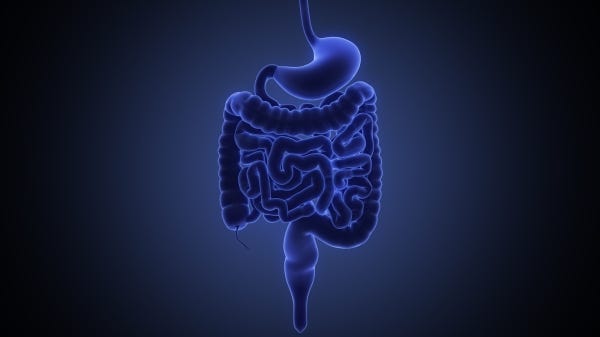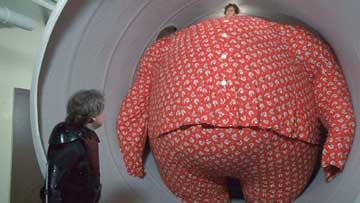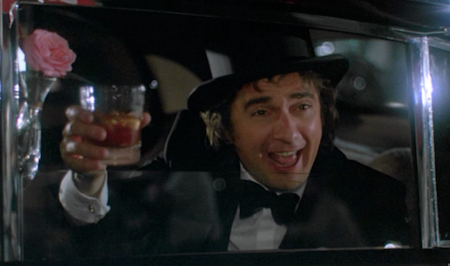Imagine not needing to buy alcohol or even needing to drink alcohol in order to get drunk. Further imagine that your own body was a brewery capable of producing alcohol internally. In the words of Wayne Coyne of the Flaming Lips, “What would you do with all that power?”
Auto-brewery syndrome (gut fermentation syndrome) is an unusual medical condition in which potentially intoxicating quantities of alcohol (ethanol) are produced through endogenous fermentation within the digestive system (aka “gut”) by a yeast called Saccharomyces cerevisiae or a diploid fungus, yeast, and filamentous cells called Candida albicans. While the condition sounds to some like a joke or an excuse for DUI, auto-brewery syndrome is a very real — albeit rare — medical phenomenon. Because the yeast thrives on sugar and carbohydrates, treatment for the disorder typically consists of use of antifungal drugs and a low-sugar and low-carbohydrate diet. However, if a person doesn’t know they have this condition, they may not take steps to address it.

Auto-brewery Syndrome in the Media
In early 2014, The Mad Science Blog published a blog post that efficiently summarized the science of auto-brewery syndrome. Later in 2014, ABC News’ “20/20” ran a story titled, “Drunk Without Alcohol: Strange Condition Ferments Food in Gut” on auto-brewery syndrome. Techinsider.io and BuzzFeed reported on the phenomenon in 2015, and Bustle also reported on it in early 2016. Most media reports on auto-brewery syndrome focus on the novelty and received humor of the medical condition, and the legal defenses it presents (or appears to present). However, for people who actually suffer from the condition, it’s anything but humorous. It’s alarming, frustrating, anxiety-causing, and dangerous. It can also lead to very expensive medical and legal problems.
Is auto-brewery syndrome a defense to DUI?
Probably not in most states. Law enforcement typically takes the position that the amount of ethanol produced by auto-brewery syndrome is in concentrations far too low to have any forensic or medical significance. However some people report BACs of 0.12 after simply eating sugar and carbohydrates. Other people report functioning at 0.30 and 0.40 BACs when the typical person would be comatose or dying at such levels. It should be mentioned that “BAC” stands for “Blood Alcohol Concentration” and it’s how we measure the amount of ethanol in someone’s blood.
According to the Oregonian, auto-brewery syndrome has been used as a defense in New York, Texas, and in Oregon. The Register-Guard reports that Ray C. Lewis was charged with DUI in 2014 and accused of having a BAC of 0.29. The defendant was prohibited from presenting evidence of his auto-brewery syndrome and was ultimately convicted.
Part of the reason that a DUI defendant would have difficulty using the condition as a defense in many states would be that DUI is often a “strict liability” crime. That means no mental element is required. For example, a driver doesn’t have to intend to drive under the influence of intoxicants, have knowledge that they are driving under the influence of intoxicants, or even recklessly drive while under the influence of intoxicants. If their BAC was over the so-called legal limit and they were operating a motor vehicle, why they got drunk, how they got drunk, or how easily they got drunk would be largely irrelevant.
Is auto-brewery syndrome as much fun as it sounds?
Not really. When I first read about the syndrome, I pictured Bob McKenzie from the movie Strange Brew. You remember the scene…

But all joking aside, there appears to be a very real problem with the comic novelty of brewing your own alcohol internally: It’s largely uncontrollable in both quantity and duration. Meaning, that you don’t have much of a choice as to whether you have only a slight increase in your BAC or a significant increase in your BAC. While a low BAC can cause euphoria, a high BAC can lead to a loss of consciousness or even death. Finally, there is a difference between wanting to drink after work, on weekends, or special occasions vs. drinking all the time. Without medical treatment, some people with auto-brewery syndrome might be forced to feel the effects of alcohol 24/7. Their body could be producing ethanol in the morning, at work, while driving, and even while sleeping. There’s only one person who would possibly enjoy such an arrangement: The happily unemployed, extremely wealthy, and fabulously chauffeured Arthur Bach…

Author Michael G. Romano is a Portland DUI attorney and licensed only to practice in the State of Oregon. This article is not intended to be legal advice, or a solicitation for legal services. All movie stills are used under “Fair Use” doctrine and no rights to these copyrighted works are claimed or implied.
